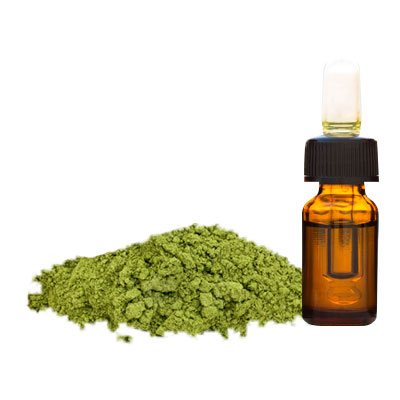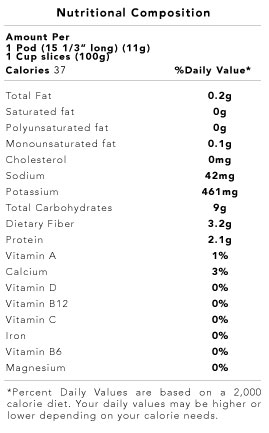
Scientific Name
Moringa oleifera
Production Areas
South Asia and tropics
Grade
Organic
Form
Leaves, Powder, Pallet, and Gel Capsules

Scientific Name
Moringa oleifera
Production Areas
South Asia and tropics
Grade
Organic
Form
Leaves, Powder, Pallet, and Gel Capsules

Facts
Moringa, sometimes described as the “miracle tree,” “drumstick tree,” or “horseradish tree,” has small, rounded leaves that are packed with an incredible amount of nutrition: protein, calcium, beta carotene, vitamin C, potassium... you name it, moringa’s got it. No wonder it’s been used medicinally (and as a food source) for at least 4,000 years.
The fact that moringa grows rapidly and easily makes it especially appealing for impoverished areas, and it’s been used successfully for boosting nutritional intake in Malawi, Senegal, and India. In these areas, moringa may be the most nutritious food locally available, and it can be harvested year-round.
Preliminary Health Research
1. A Rich Nutritional Profile
Moringa leaves are loaded with vitamins, minerals, essential amino acids, and more. One hundred grams of dry moringa leaf contains:
2. Antioxidants Galore
Moringa leaves are rich in antioxidants, including vitamin C, beta-carotene, quercetin, and chlorogenic acid. The latter, chlorogenic acid, has been shown to slow cells' absorption of sugar and animal studies have found it to lower blood sugar levels. As noted in the Asian Pacific Journal of Cancer Prevention: “The leaves of the Moringa oleifera tree have been reported to demonstrate antioxidant activity due to its high amount of polyphenols. Moringa oleifera extracts of both mature and tender leaves exhibit strong antioxidant activity against free radicals, prevent oxidative damage to major biomolecules, and give significant protection against oxidative damage.”
Further, in a study of women taking 1.5 teaspoons of moringa leaf powder daily for three months, blood levels of antioxidants increased significantly.
3. Lower Blood Sugar Levels
Moringa appears to have anti-diabetic effects, likely due to beneficial plant compounds contained in the leaves, including isothiocyanates. One study found women who took seven grams of moringa leaf powder daily for three months reduced their fasting blood sugar levels by 13.5 percent.
Separate research revealed that adding 50 grams of moringa leaves to a meal reduced the rise in blood sugar by 21 percent among diabetic patients.
4. Reduce Inflammation
The isothiocyanates, flavonoids, and phenolic acids in moringa leaves, pods, and seeds also have anti-inflammatory properties. “The tree’s strong anti-inflammatory action is traditionally used to treat stomach ulcers. Moringa oil (sometimes called Ben oil) has been shown to protect the liver from chronic inflammation. The oil is unique in that, unlike most vegetable oils, moringa resists rancidity. This quality makes it a good preservative for foods that can spoil quickly. This sweet oil is used for both frying or in a salad dressing. It is also used topically to treat antifungal problems, arthritis, and is an excellent skin moisturizer.”
5. Maintain Healthy Cholesterol Levels
Moringa also has cholesterol-lowering properties, and one animal study found its effects were comparable to those of the cholesterol-lowering drug simvastatin. As noted in the Journal of Ethnopharmacology: “Moringa oleifera is used in Thai traditional medicine as cardiotonic. Recent studies demonstrated its hypocholesterolemic effect… In hypercholesterol-fed rabbits, at 12 weeks of treatment, it significantly (P<0.05) lowered the cholesterol levels and reduced the atherosclerotic plaque formation to about 50 and 86%, respectively. These effects were at degrees comparable to those of simvastatin… The results indicate that this plant possesses antioxidant, hypolipidaemic, and antiatherosclerotic activities, and has therapeutic potential for the prevention of cardiovascular diseases.”
6. Protect Against Arsenic Toxicity
The leaves and seeds of moringa may protect against some of the effects of arsenic toxicity, which is especially important in light of news that common staple foods, such as rice, may be contaminated. Contamination of ground water by arsenic has also become a cause of global public health concern, and one study revealed: “Co-administration of M. oleifera [moringa] seed powder (250 and 500 mg/kg, orally) with arsenic significantly increased the activities of SOD [superoxide dismutase], catalase, and GPx with elevation in reduced GSH level in tissues (liver, kidney, and brain). These changes were accompanied by approximately 57%, 64%, and 17% decrease in blood ROS [reactive oxygen species], liver metallothionein (MT), and lipid peroxidation respectively in animal co-administered with M. oleifera and arsenic.
Another interesting observation has been the reduced uptake of arsenic in soft tissues (55% in blood, 65% in liver, 54% in kidneys, and 34% in brain) following administration of M. oleifera seed powder (particularly at the dose of 500 mg/kg). It can thus be concluded from the present study that concomitant administration of M. oleifera seed powder with arsenic could significantly protect animals from oxidative stress and in reducing tissue arsenic concentration. Administration of M. oleifera seed powder thus could also be beneficial during chelation therapy...”
Advantages
Moringa oleifera has an impressive range of medicinal uses with high nutritional value and medicinal benefits. Different parts of Moringa contain a profile of important minerals and are a good source of protein, vitamins, beta-carotene, amino acids and various phenolics.
Use
Moringa is used for “tired blood” (anemia); arthritis and other joint pain (rheumatism); asthma; cancer; constipation; diabetes; diarrhea; epilepsy; stomach pain; stomach and intestinal ulcers; intestinal spasms; headache; heart problems; high blood pressure; kidney stones; fluid retention; thyroid disorders; and bacterial, fungal, viral, and parasitic infections.
Moringa is also used to reduce swelling, increase sex drive (as an aphrodisiac), prevent pregnancy, boost the immune system, and increase breast milk production. Some people use it as a nutritional supplement or tonic.
Moringa is sometimes applied directly to the skin as a germ-killer or drying agent (astringent). It is also used topically for treating pockets of infection (abscesses), athlete’s foot, dandruff, gum disease (gingivitis), snakebites, warts, and wounds.
Oil from moringa seeds is used in foods, perfume, and hair care products, and as a machine lubricant.
Moringa is an important food source in some parts of the world. Because it can be grown cheaply and easily, and the leaves retain lots of vitamins and minerals when dried, moringa is used in India and Africa in feeding programs to fight malnutrition. The immature green pods (drumsticks) are prepared similarly to green beans, while the seeds are removed from more mature pods and cooked like peas or roasted like nuts. The leaves are cooked and used like spinach, and they are also dried and powdered for use as a condiment.
The seed cake remaining after oil extraction is used as a fertilizer and also to purify well water and to remove salt from seawater.
Moreover, the water and methanol which also contains give antioxidant properties useful to prevent cellular oxidation and preventing various diseases due to its anti-inflammatory effect.